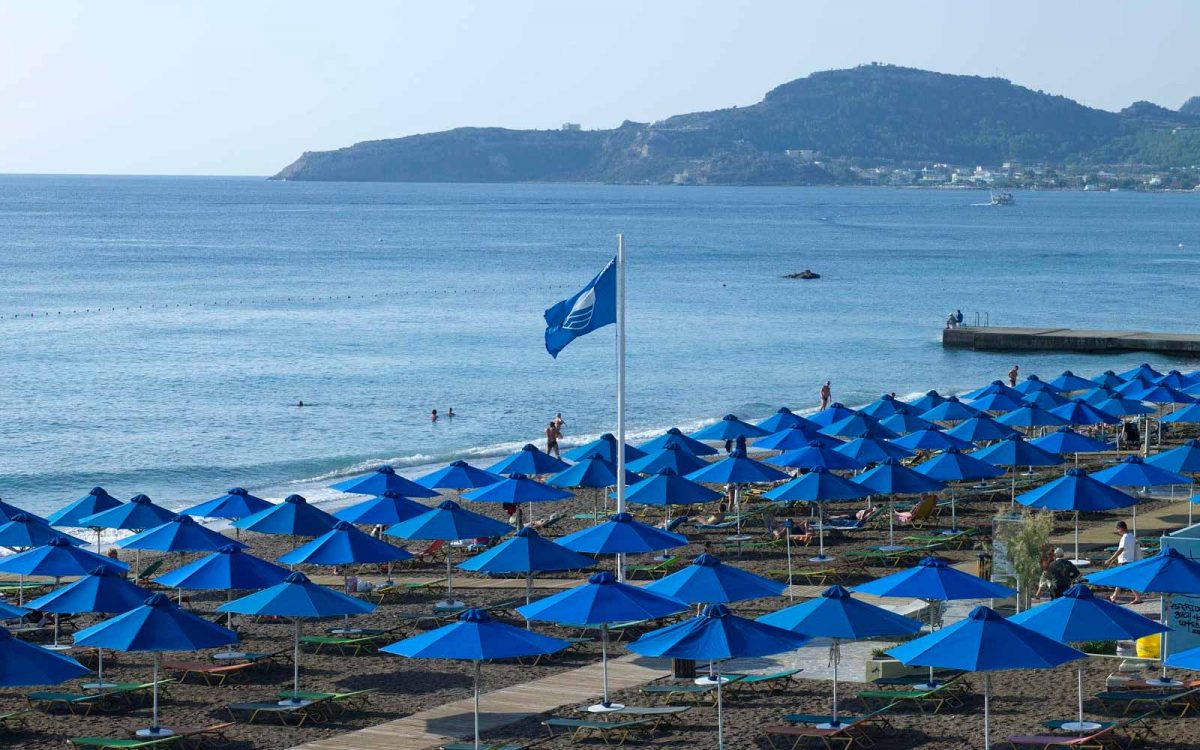Greece is the country with the second highest number of Blue Flag-awarded beaches worldwide again this year, coming only behind Spain.
In total, for 2020, Greece received 497 flags for beaches, as well as 14 for marinas and 6 for sustainable tourism boat operators. A total of 47 countries were awarded Blue Flags this year.
The happy news comes as hundreds of organized beaches have just reopened following the lockdown put in place to contain the spread of the coronavirus. They are now operating under new health and safety guidelines, requiring, among other things, umbrellas to be placed four meters apart, and a limit of no more than 40 bathers per 1000m2.
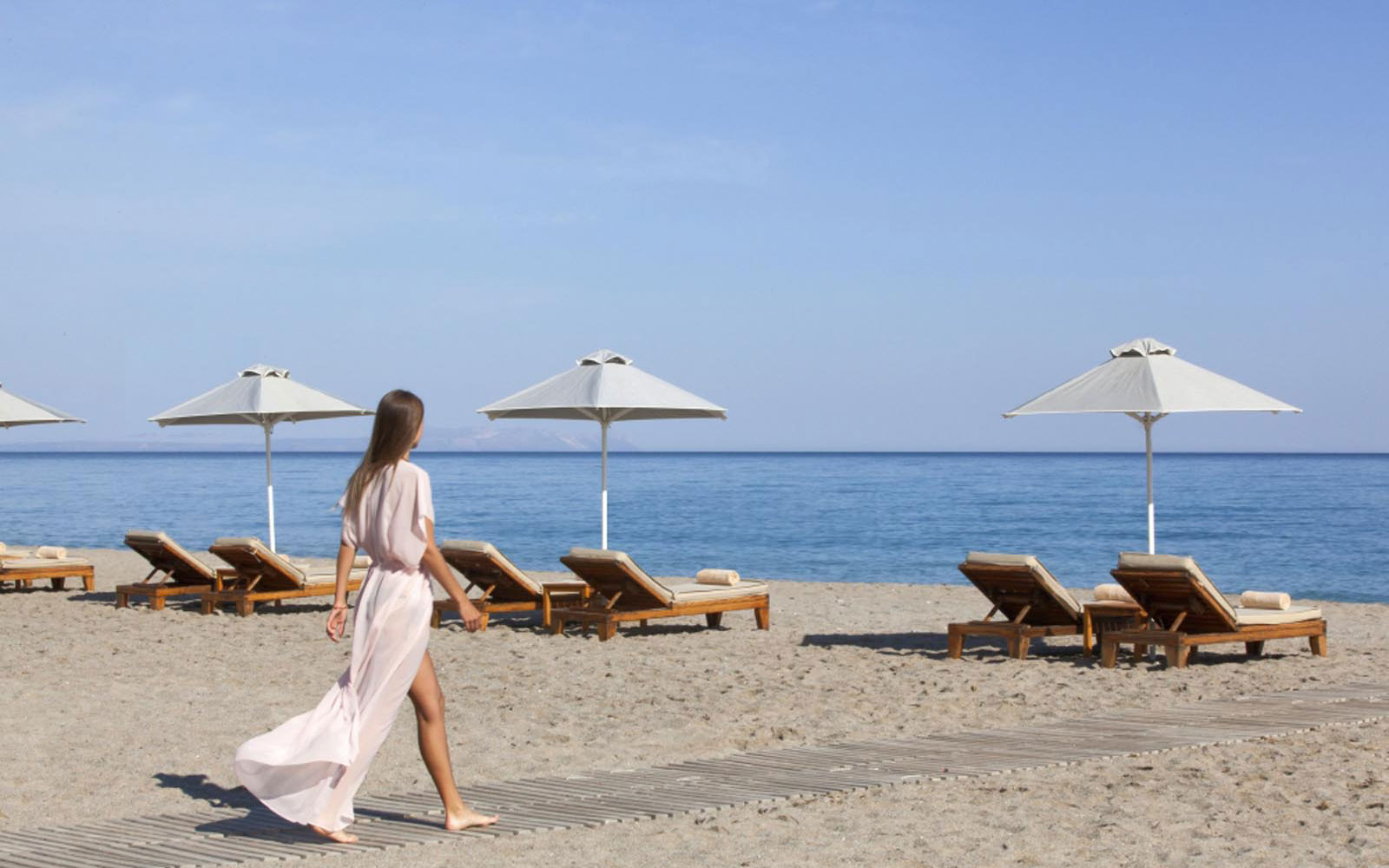
© Blue Flag
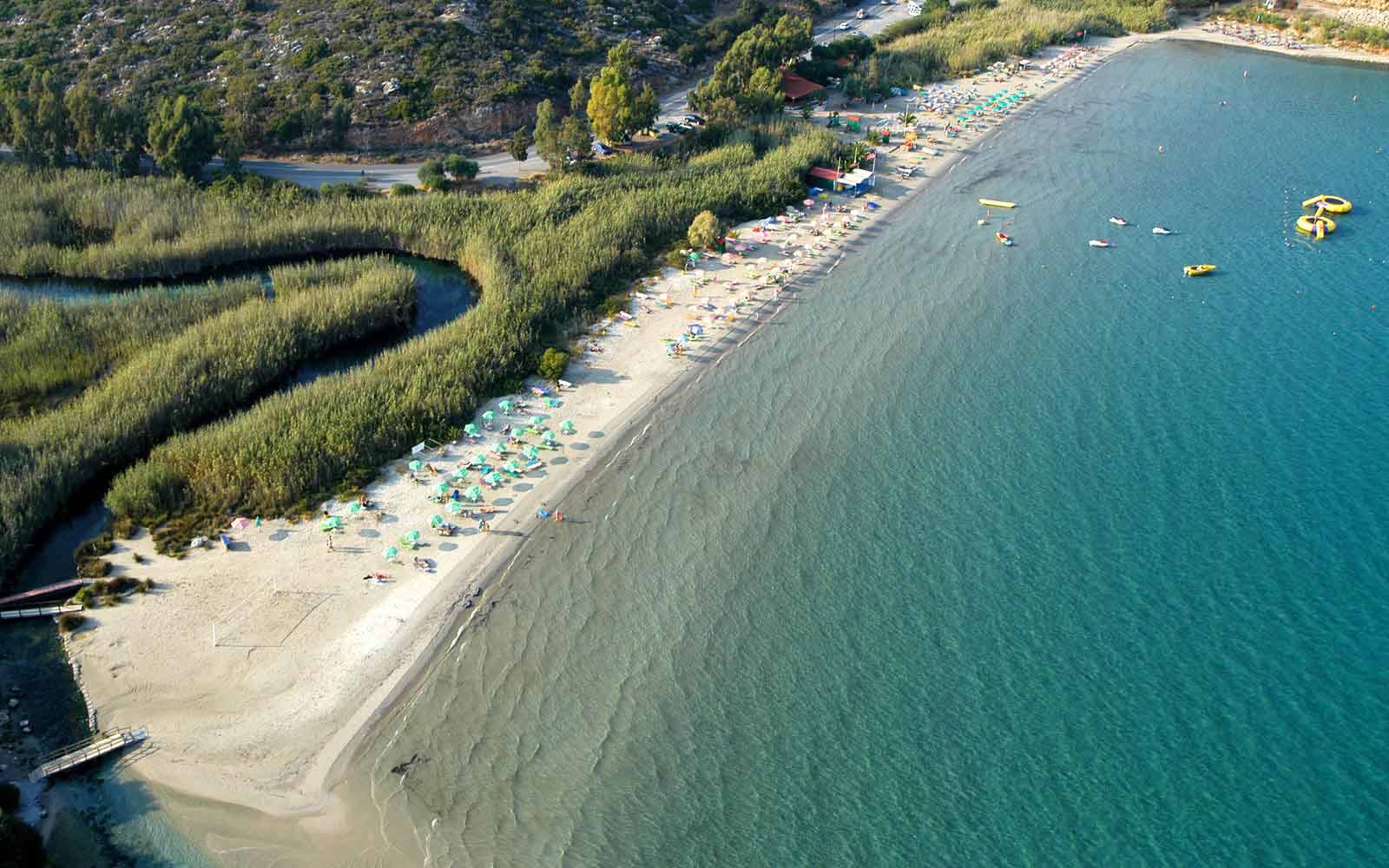
© Blue Flag
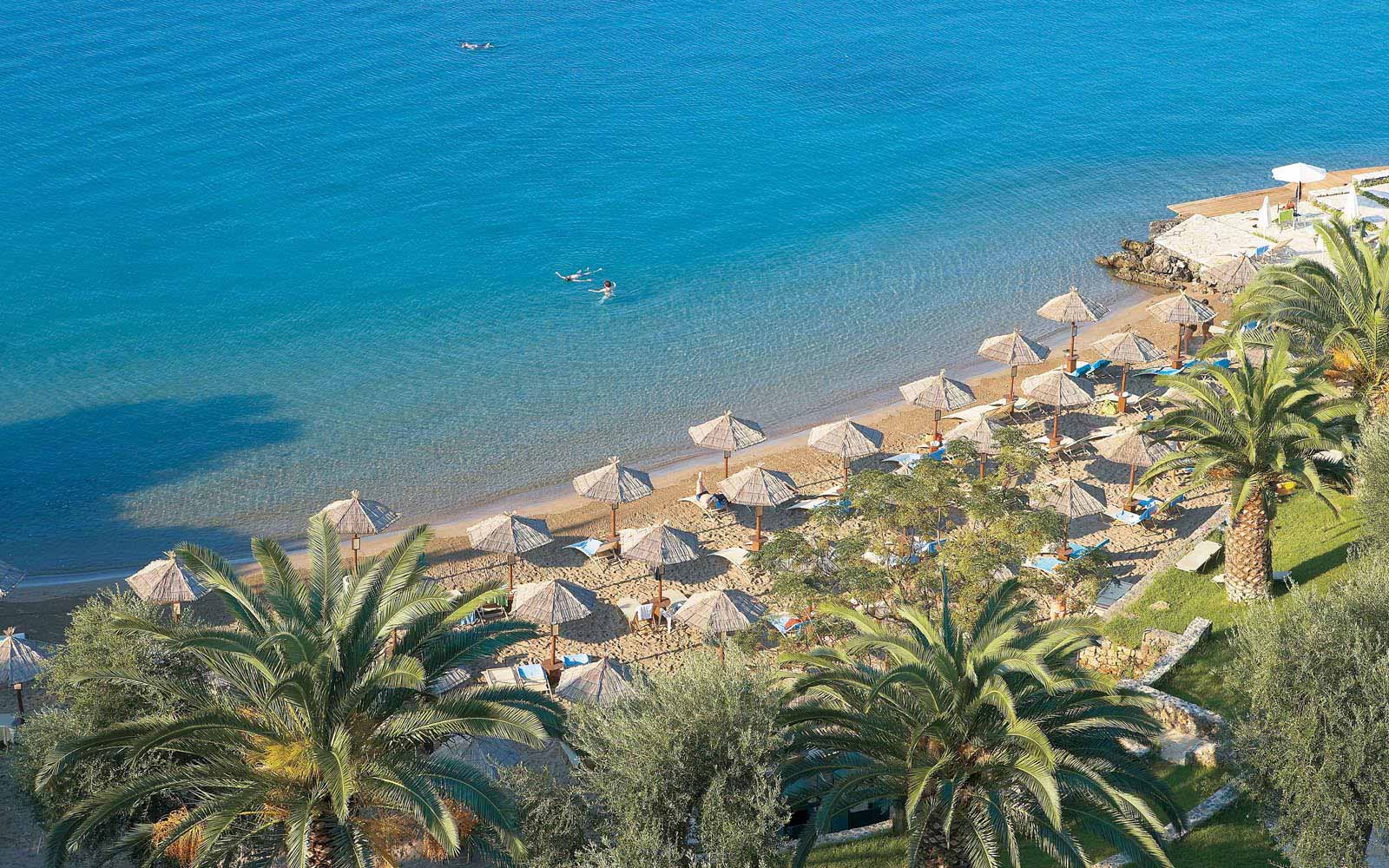
© Blue Flag
Blue Flags are awarded to beaches based on a long list of criteria, including the cleanliness the water, but also services such as restrooms, first aid equipment and disabled-friendly access as well as eco-friendly practices. Therefore, they are only awarded to organized beaches; (the water quality at the vast majority of swimming spots – organized and not – around Greece is routinely rated excellent).
In a statement on the program’s website, the foundation has launched the hashtag #BlueFlagStaysStrong, and acknowledged the struggle that operators have faced in these unprecedented times:
“Many of you will have to or have already had to close down your beaches, your marinas or your tourism boat businesses to ensure public health measures are respected. Many of you wonder if you will be able to operate this upcoming tourism season. As we are preparing our International Jury meeting to award the 2020 Northern Hemisphere beaches, marinas and tourism boats, we want you to know that we are wholeheartedly standing with you. Throughout this crisis, and when it is over, we at Blue Flag will be here to help you navigate through the challenges and make the best decisions for your sites.”
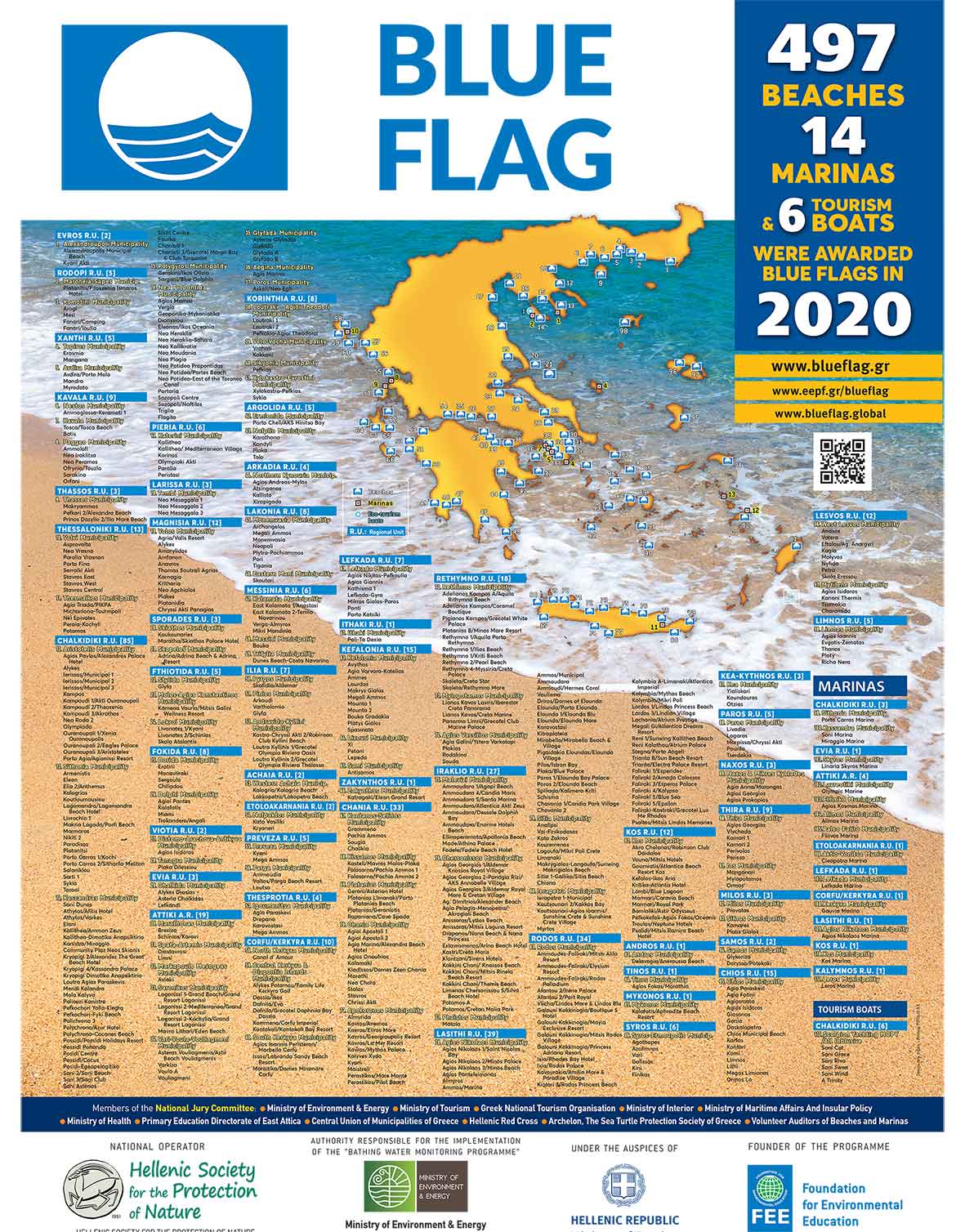
© Blue Flag
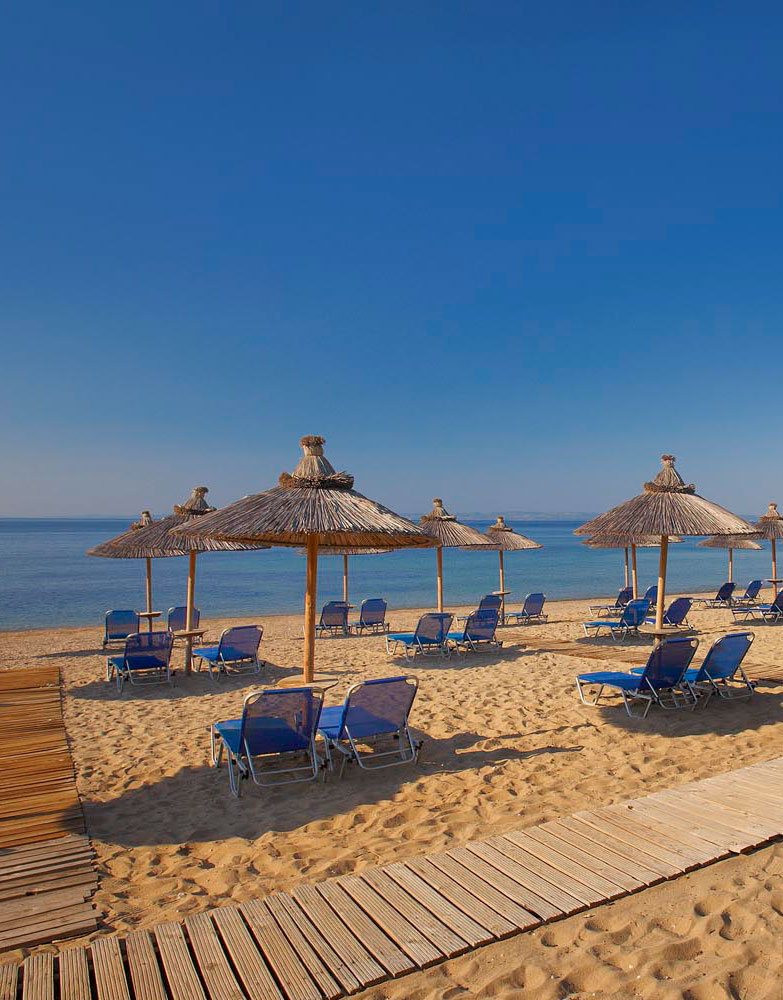
© Blue Flag
Which Greek regions stood out this year?
At a regional level, Crete, as was expected, stood out with 117 awarded beaches and 1 marina. Next on the ranking is Central Macedonia (which includes the peninsulas of Halkidiki) with 104 swimming spots and 3 marinas, and the Southern Aegean region – the Cyclades and Dodecanese – with 78 awarded beaches and 2 marinas.
At the regional unit level, Halkidi comes first with 85 Blue Flags, followed by Lasithi (Crete) with 39, Rhodes with 34, Hania with 33, Irakleio with 27, Attica with 19, Rethymno 18 and finally, Kefalonia and Chios with 15 awarded Blue Flags.
Some islands and regions were awarded more flags than last year: Kos went from 10 to 12, Corfu from 9 to 10 and Corinthia from 6 to 8.
At a municipal level, it was the Municipality of Rhodes that came in first, with 34 Blue Flags, followed by the municipalities of Kassandra (in Halkidiki) with 32, Aghios Nikolaos (Crete) with 26, Nea Propontida and Sithonia (Halkidiki), 18, Hersonissos (Crete), 17, Aristoteli (Halkidiki), 15, Chios, 15, and Volos and Kos, both with 12.
You can find the complete list of Greek Blue Flag-awarded beaches, marinas and boats here.
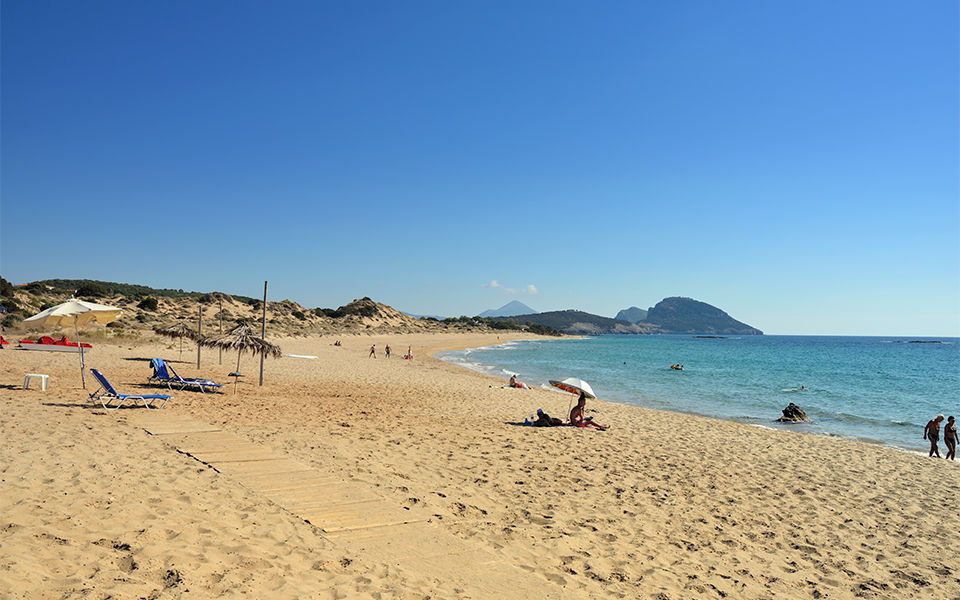
How are Blue Flag-awarded beaches selected?
Participants must file an application which is examined by the Greek jury committee, which is made up of representatives from government, local administrations, environmental organizations and other bodies.
Applicants are assessed on their compliance with requirements during high season, with no prior notice, either by the Hellenic Society for the Protection of Nature or the FEE – this is why it is not uncommon for areas to “lose” their Blue Flag during tourist season.
The global program is one of the world’s most respected eco-labels, the aim of which is to promote organized, sustainable tourism.
Blue Flags have been awarded since 1987, first only to beaches and marinas; since 2017, tourist boats are awarded too for eco-friendly practices. The program was founded and is internationally coordinated by the Denmark-based Foundation for Environmental Education (FEE), which comprises 73 member countries from all continents.
In Greece, the program is overseen by the Hellenic Society for the Protection of Nature, and is actively supported by the Hellenic Ministry of Environment and Energy as well as the Central Union of Municipalities of Greece.

